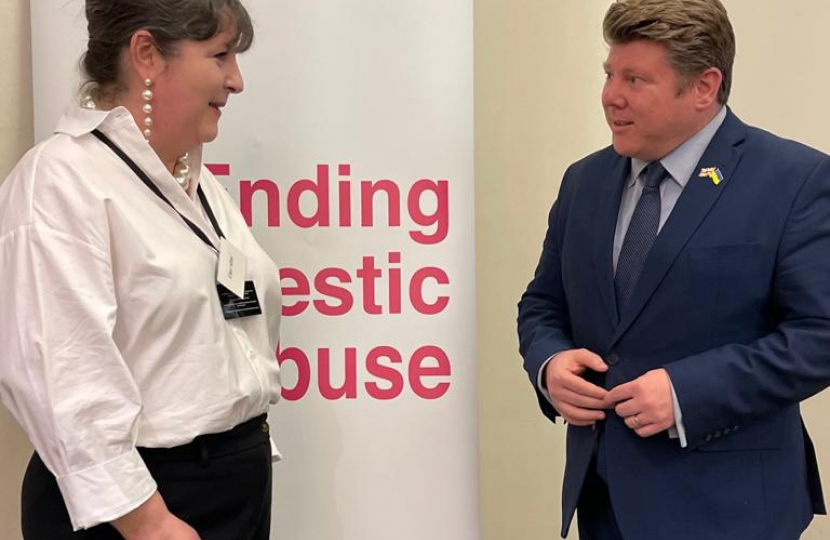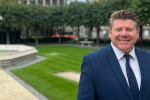I sponsored an event today in parliament alongside the national domestic abuse charity ‘SaveLives.’
The charity works with organisations across the UK to transform the response to domestic abuse, challenging perpetrators to change their behaviour and supporting victims with awhole family,‘whole picture’approach.
Sadly, over two million people in the UK experience domestic abuse, with many perpetrators repeating the abuse and children growing up impacted by the long-term effects.
I would like to thank SafeLives for their continuing dedication to support survivors of domestic abuse and their hard work in producing these initial findings as part of their report on delivering a holistic approach to ending domestic abuse for good.
I also thank the survivors who attended the event to talk about the importance of listening to survivors and their experiences, and putting their voices at the heart of strategies to shape a more effective response to domestic abuse locally. Abuse within the family is abhorrent and I look forward to the progress of the report as SafeLives continue their vital work. I am pleased the Minister for Safeguarding, Sarah Dines MP, was in attendance and spoke sensitively on this important issue'.
Ellen Miller, Interim CEO of SafeLives said “We are pleased to share insights in an interim report, which provides thematic findings from delivering our approach to ending domestic abuse in twelve local authority areas in England and Wales. Our four-step approach is based on the whole local system working together more effectively to provide joined-up, timely wraparound support for the whole family affected by domestic abuse and is responsive to the diverse needs of all communities.
“We have been working alongside local systems to change how they think about domestic abuse and how it should be tackled, putting victim-survivors at the heart and start of creating better support for families. This means identifying where improvement is needed, co-creating solutions, addressing gaps in service provision, and helping local services work together more cost effectively.
“We are now building on this exciting work to support local areas to implement changes, so that more families get the right support at the right time.”
NOTES TO THE EDITOR
The most recent Crime Survey for England and Wales estimates that2.4 million people aged 16 to 74 in England and Wales experienced domestic abuse in the previous year.i
oWhile data is limited, we know this means there are as many perpetrators of abuse – and likely many more child victims.
The impact of domestic abuse on individuals and society is immense, the scale of which is only beginning to be understood fully.
oThe Home Office estimates the cost of domestic abuse in a one-year period to be approximately £66 billionii– including the costs of physical and emotional harm to victims, and public services responding to this horrendous crime.
We know that far too many individuals have their lives destroyed by domestic abuse, including children who grow up living with fear and intimidation – the trauma of which often lasts into adulthood.
For some, domestic abuse is fatal. In the year leading up to March 2022, there were 132 recorded domestic homicides.iii
oThe recent and horrifically tragic loss of Emma and Lettie Pattison, a mother and her daughter, is an excruciating and urgent reminder of the need to look at the impact of domestic abuse on the whole family, and for services to work together in order to identify and stop domestic abuse before it’s too late.
oDomestic Homicide Reviews (DHRs) and Serious Case Reviews (SCRs) frequently highlight that professionals fail to identify the different forms of risk that were present, and how they had impacted on different family members - missing opportunities to intervene earlier.iv
We know that family members and their vulnerabilities interconnect- people do not operate in silos. We must then take a holistic view of each individual affected by domestic abuse and the services needed to support them.
oThis meansensuring a co-ordinated community response whichplaces survivor voice at the heart and start of policy and service design, listening to and supporting children, and holding perpetrators to account.
Copyright 2025 Dean Russell . All rights reserved.
Powered by Bluetree




